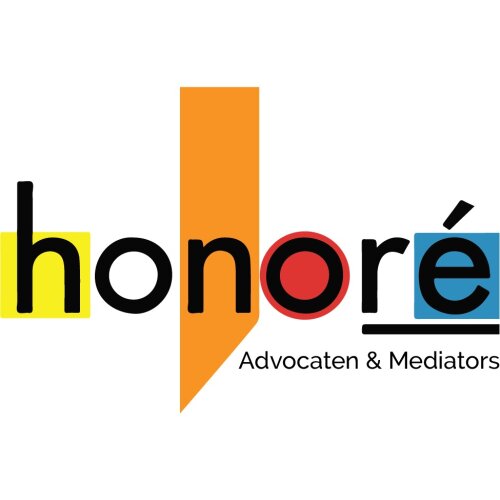Best Hiring & Firing Lawyers in Utrecht
Share your needs with us, get contacted by law firms.
Free. Takes 2 min.
List of the best lawyers in Utrecht, Netherlands
About Hiring & Firing Law in Utrecht, Netherlands
Utrecht, a vibrant city in the Netherlands, operates under the framework of Dutch labor law. This area of law regulates the relationship between employers and employees from recruitment to termination. The Netherlands is known for its well-structured labor laws, prioritizing employee rights while maintaining a balance with business interests. Employment contracts, employee dismissal, working conditions, and dispute resolutions are all governed by these regulations, ensuring a fair and just work environment.
Why You May Need a Lawyer
Various situations may necessitate seeking legal advice in the realm of hiring and firing. Employers might need legal consultation to ensure compliance with employment laws when drafting contracts or terminating employees. Employees, on the other hand, could require legal support if they face unfair dismissal, discrimination, or need clarification on contract terms. Both parties may benefit from legal guidance in resolving disputes or negotiating settlement agreements.
Local Laws Overview
Utrecht follows the nationwide employment laws of the Netherlands, which include strict regulations on employment contracts, dismissal procedures, and employee rights. Employment contracts may be fixed-term or indefinite, and the type chosen influences the termination process. The Dutch Unemployment Insurance Act lays down the process for dismissal, requiring a valid reason and, in most cases, permission from the Employee Insurance Agency (UWV) or a subdistrict court. Utrecht also adheres to equal treatment laws, prohibiting discrimination based on age, gender, race, or disability, among other factors.
Frequently Asked Questions
What is the probationary period allowed in employment contracts?
In the Netherlands, a probationary period is typically up to one month for contracts shorter than two years and up to two months for longer or indefinite contracts, provided both employer and employee agree to it in writing.
What are the legal grounds for employee dismissal?
Employers must have a substantial reason to terminate an employee. Common grounds include economic redundancy, long-term illness, poor performance, or misconduct. Each requires a different procedure for termination.
Is severance pay mandatory upon dismissal?
Yes, employers are generally required to provide a transitional compensation to dismissed employees, calculated based on years of service and the employee's salary.
Are fixed-term contracts automatically converted to indefinite contracts?
If an employee is offered a fourth consecutive fixed-term contract, or if the cumulative duration exceeds 36 months, the contract automatically becomes indefinite unless there is a six-month break between contracts.
Can an employee challenge an unfair dismissal?
Yes, employees can contest dismissals through legal action if they believe the termination lacked a valid reason or did not follow due process.
What protections exist against workplace discrimination?
Dutch law prohibits discrimination in hiring, firing, and workplace practices based on various attributes such as race, gender, and disability, ensuring equal treatment for all employees.
Is it mandatory for employers to have written employment contracts?
While a written contract is not mandatory, providing a written document with terms and conditions of employment is highly recommended to avoid disputes.
What are the notice period requirements for resignation or termination?
Notice periods are determined by contract terms but generally range from one to four months, increasing with the length of employment.
Can employers conduct employee background checks?
Employers may perform background checks, but they must comply with privacy laws and ensure the relevance of the checks to the job role.
What legal consequences arise from wrongful dismissal?
Employers may face legal penalties, be required to reinstate the employee, or provide additional compensation if found guilty of wrongful dismissal.
Additional Resources
For further assistance, individuals can consult the Employee Insurance Agency (UWV) for information on dismissals, the Netherlands Labour Authority for work conditions, or the Dutch Bar Association for finding legal professionals specializing in employment law. Government websites and local legal aid organizations are also helpful resources for guidance on labor laws and rights.
Next Steps
If you require legal assistance regarding hiring or firing in Utrecht, it is advisable to consult with an employment lawyer specializing in Dutch labor law. Start by gathering all relevant documentation, including employment contracts and correspondence related to your situation. Schedule consultations with legal experts to discuss your case and understand your rights and options. Thorough preparation and professional guidance can significantly improve the outcome of your legal matters.
Lawzana helps you find the best lawyers and law firms in Utrecht through a curated and pre-screened list of qualified legal professionals. Our platform offers rankings and detailed profiles of attorneys and law firms, allowing you to compare based on practice areas, including Hiring & Firing, experience, and client feedback.
Each profile includes a description of the firm's areas of practice, client reviews, team members and partners, year of establishment, spoken languages, office locations, contact information, social media presence, and any published articles or resources. Most firms on our platform speak English and are experienced in both local and international legal matters.
Get a quote from top-rated law firms in Utrecht, Netherlands — quickly, securely, and without unnecessary hassle.
Disclaimer:
The information provided on this page is for general informational purposes only and does not constitute legal advice. While we strive to ensure the accuracy and relevance of the content, legal information may change over time, and interpretations of the law can vary. You should always consult with a qualified legal professional for advice specific to your situation.
We disclaim all liability for actions taken or not taken based on the content of this page. If you believe any information is incorrect or outdated, please contact us, and we will review and update it where appropriate.










